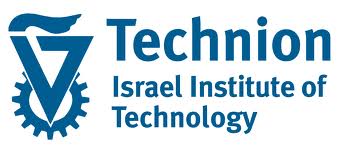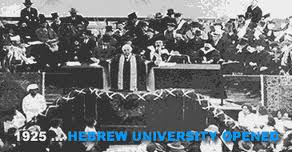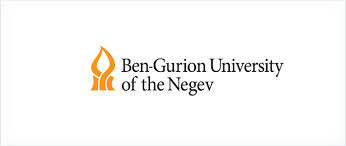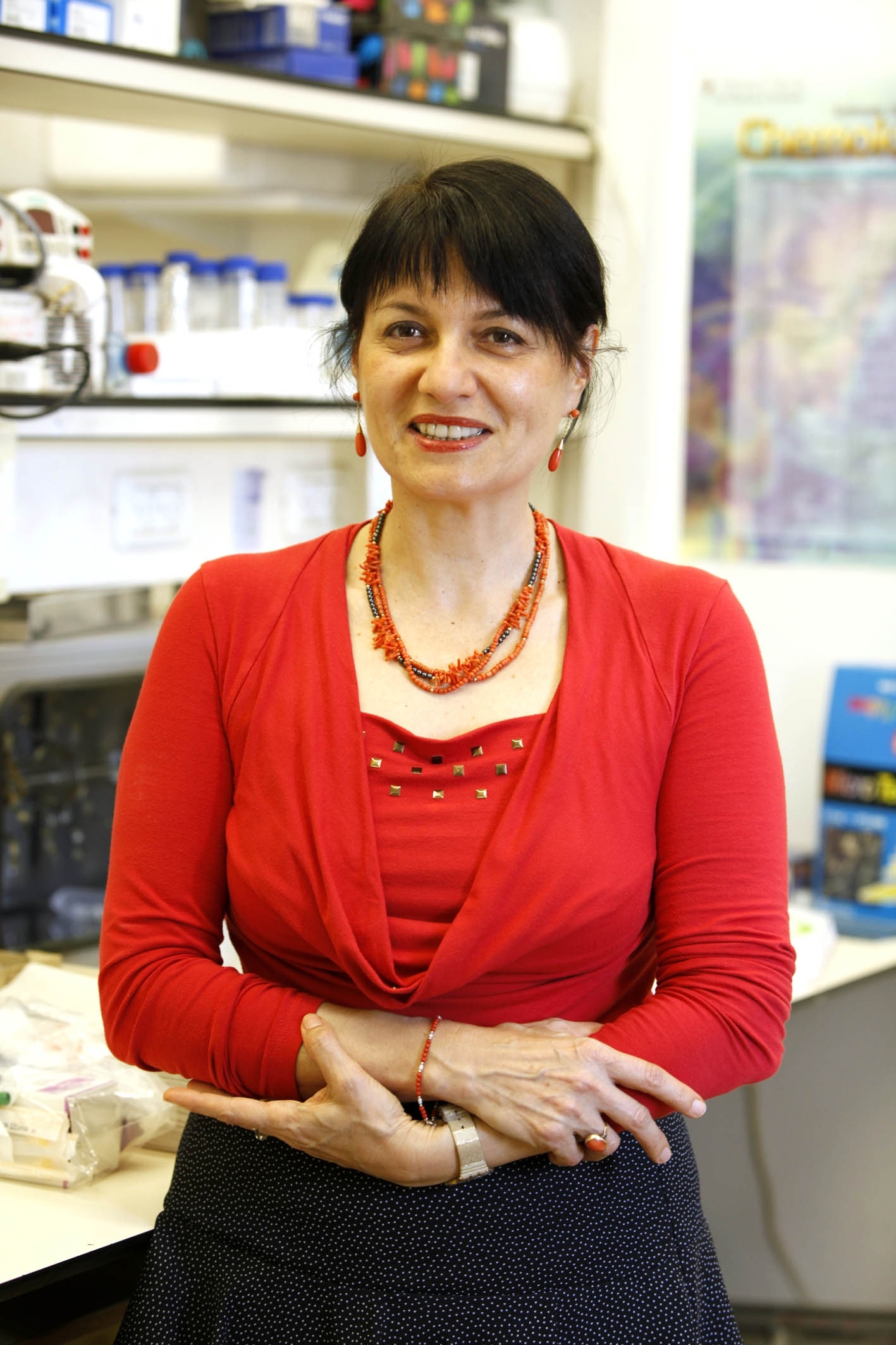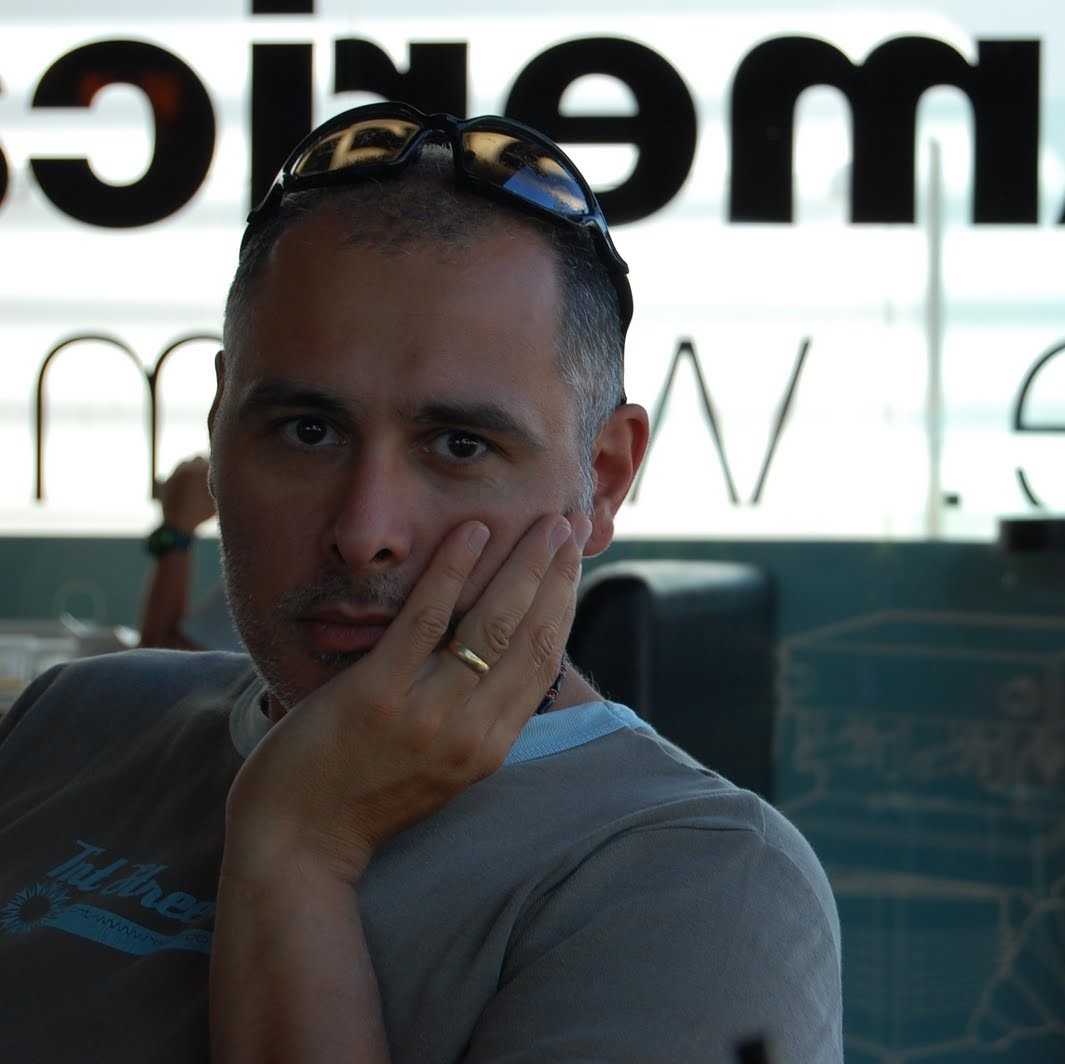|
|
|

|
|
December 2013
|
||||||||||||||||||||||||||||||||||||||||||||||||||||||||||||||||||||

|

|

|
| Science and Technology in Israel |

|

|
Science and Technology in Israel
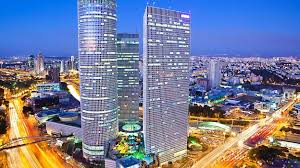
- Israel is one of the states that invest more in research and development, more than the 4% of its GDP.
- Israel has 8 Nobel laureates in science, one of the highest numbers of scientific publications and quotation of Israeli authors in the world and a significant number of prestigious scientific institutions.
- Since 2000, Israel is member to EUREKA, the pan-European programme of research funding, with substantial contribution to European research activities.
- Research and industrial partners work closely on applied research projects and technology transfer projects. Israel ranks among the 20 major countries for registered patents.
- The army is also a source of training and development of several scientific projects for civilian use.
The origins
 First students cohort in Mikveh Yisrael Agricultural School, 1870
First students cohort in Mikveh Yisrael Agricultural School, 1870
- The Zionist enterprise to build a Jewish homeland in the Near East attached fundamental importance to agriculture. Given the difficult climatic conditions, agricultural research is the first field of studies that has developed in pre-state Israel, after the foundation of the Mikveh Yisrael Agricultural School in 1870.
Einstein visiting the Technion, 1923
- The Israel Institute of Technology (Technion) was founded in pre-State Israel (Ottoman ruled Palestine) in the beginning of the 20th century, when many Jews were still barred from technical education in European universities.
- With the foundation of the Hebrew University of Jerusalem in 1925, scientific faculties were opened. In 1939, the Hadassah Medical Centre opened as the first medical research institution and hospital in pre-state Israel.
Volcani Institute Logo
- In 1932, the Agriculture Research Station was founded by the Jewish Agency, which later became the Volcani Institute of Agricultural Research, named after its first director, Yitzhak Elazar Volcani.
The Weizmann Institute
- In 1934, the Zionist leader and later first president of the State of Israel Chaim Weizmann, together with Benjamin Bloch, founded the Daniel Sieff Research Institute, which later became the Weizmann Institute of Science.
- The Ben-Gurion University of the Negev was founded in 1969, named first University of the Negev and specialising research in desert studies. Ben-Gurion’s belief that the Negev represents Israel’s future inspires the mission of its scientific institutes.
Academic boycott
- Academic boycott of Israel is part of the BDS (boycott, divestment and sanction) strategy. Boycott campaigns maintain that Israeli is an apartheid state and as such world universities should divest from Israeli academic institutions. Academic boycott proposal remain largely unimplemented.
- However, in 2010 a large campaign in South Africa launched by academics, journalists and political leaders targeted the cooperation between the University of Johannesburg and the Ben-Gurion University of the Negev. The University of Johannesburg has adopted a resolution conditioning cooperation with Ben-Gurion University of the Negev on the lack of any military link of researchers and research activities. The Universities of Cape Town, Pretoria and Kwazulu-Natal adopted similar resolutions.
Stephen Hawking
- In May 2013, British scientist Stephen Hawking joined the BDS movement refusing to participate in the 2013 Israel presidential conference. Anti-BDS activists denounced his hypocrisy, since his body affected by a motor neuron disease has a system of communication based on Israeli technology. Ben-Gurion once said: “Israel’s capacity for science and research will be tested in the Negev.”

| Interview with Francesca Levi-Schaffer |

|

|
Interview with Francesca Levi-Schaffer
Isaac & Myrna Kaye Professor of Immunopharmacology, The Hebrew University of Jerusalem
Israel has a considerable success in science and technology, with a substantial number of Nobel laureates and an appreciable number of patents. Why is science so important?
I think that the first reason is cultural and stems from Jewish tradition. Jews attach importance to studying and have always strived to excel in the intellectual domain. Studying, researching and analysing are central to the Jewish tradition and certainly contributed to Israel’s approach toward science and scientific research. In this respect the religious tradition also helped. I am secular, but I recognise that Jewish religious tradition is conducive to the love for knowledge and research. Secondly, Israel’s first president was Chaim Weizmann, a brilliant scientist; it is therefore a tradition to excel in science and then in technology. Every year for Yom Haatzmaut, the Day of Independence, the president gives a speech, and science is central in this speech and always cited as a source of proud for Israel.What is your research about?
My field of research regards allergies in both domains of pharmacology and immunology. In specific, I research on mechanisms against illnesses; I study the underline mechanisms used by the human body during allergic reactions and the role of cells that cause allergies and some kind of cancers.Can you tell about any major success in your field?
I can say that I myself have commenced the studies in this field in Israel, combining immunology and pharmacology. Israel was very strong in immunology, for instance in the field of synthetic vaccinations, but less in pharmacology, so I decided to research in issues concerning both fields. I also represent Israel in the International Union of Pharmacology and Clinical Pharmacology (IUPHAR). And I have three patents of new medicines to be experimented, two for asthma and the others for curing mastocytosis and mast cell leukaemia.The proximity of research and applied research also characterises Israeli scientific domain.
It is indeed. In my case, I was supported and aided by my university for finding funds for these patents. And not just through direct contributions, but also with legal and administrative assistance for finding further governmental funds and for the patent application process. Israel has numerous grants for academic and industrial research, in my field and in any other field of medicine and other sciences, because it understands the importance of applied research. As part of the Ministry of Health Committee for New Medicines, I personally see several applications for new drugs, and this makes me proud because it means that scientific and applied research is boosting.Your domain is quite sensible to ethical considerations as well.
The ethical domain is central to scientific research in Israel, and this also stems from Jewish culture. In Jewish tradition, life is the highest value, and so is the alleviation of sufferance. Life is first and foremost the absolute value, even more important than scientific curiosity or the necessity to experiment new medicines on people. Each case of new drug is thoroughly investigated and analysed in all its ethical implications for guaranteeing human dignity. The individual, the human being has a central role and importance in Israel, in both research and experimentation. Just recently, a new drug has been introduced in the US and China for testing, but we forbade the marketing because it did not pass our ethical tests implying the consequences on the patients. I am proud of Israel for this high ethical attentiveness.What about international cooperation?
Israel is committed to international activities. Even now, with all what is happening at Israel’s northern borders, we cure Syrians, with whom we do not have formal relations. We do not care if they are friends or foes, if they are Hezbollah or rebels or whatever. They are human beings and as such they are cured in Israeli hospitals. We have had extensive relations with African countries, partially interrupted due to the growing Islamization of these countries. I can give you a personal example. I found out that there are no studies on atopic dermatitis on black skin; nobody has ever cared about this illness. I am trying now to start a research on this issue also in cooperation with the Ministry of Foreign Affairs. Israel extensively contributes to international development.An approach reflected even within Israel?
Israeli scientific institutions welcome people from all cultural, religious and national backgrounds. In my research group, there is a Druse boy from the North, who just obtained his MA, a Christian-Arab girl and a Muslim-Arab girl. I also have an Indian student, studying here with an Israeli scholarship. Ethical standards also mean teaching science to everybody, regardless of his/her faith or belief or ethnic identity. 40% of students in the School of Pharmacy of the Hebrew University of Jerusalem are Arabs, with same duties and rights. We do not care if they are women, men, Jewish, Christian, Muslim, Druse or whatever; we are committed to scientific excellence.What about relations between Italy and Israel?
Under Berlusconi’s government, Italy has signed several cooperation agreements with Israel in the field of science and research. Italy is now the third country, after Germany and USA, with major scientific cooperation. My first patent has been developed in cooperation with scientists of the “Institute Gaslini” from Genoa, and I cooperate with brothers Lorenzo and Alessandro Moretta, researching on the receptor CD300A, which they found in the natural killer MK cells that make these cells kill just cancer cells and not healthy ones. I found the same receptor in my allergy cells (mast cells and eosinophils), and they protect from allergic reactions (bronchospasms, for instance). Many other colleagues have relations with Italians, who lament the situation in Italy. Israelis love Italy in general and find excellent scientific partners in Italy.What about BDS?
I think that scientists personally do not care about anti-Israeli policies. Although I am Israeli, Jewish and a woman, I have been appointed to the board of and as chair or vice chair and president of several international scientific and medical societies. As counsellor to the IUPHAR, I soon will need to travel to Cape Town, in South Africa, a state strongly involved in anti-Israeli boycott. I believe that most scientists look at what Israel has to offer, and it is a lot; people want to have a better life and Israel contributes substantially to improving people’s lives, so they may also boycott Israel, but cannot do without Israel. What often happens is that scientists do not visit Israel, as a form of boycott. They have many excuses not to come, fear of terror attacks, soldiers, whatever; therefore, Israelis are always travelling abroad to participate in conferences and meetings. For example, a South African scientist would not agree very easily to visit Israel because of the anti-Israeli policy of the South African government. I have personally never been boycotted, but I have been personally attacked and insulted for being Israeli.What does it stem from?
I believe that it is a question of governmental policies. When a state has an anti-Israeli policy, individuals do not feel comfortable to go against the official policy of their country. There are also cases of anti-Semites who hate Israel, or Jews who manifest their “politically-correctness” through anti-Israelism, mostly to cope with social pressure. I was in Milan for lecturing in a specialisation course last summer, and there were people from all over the Middle East: they all knew that I am from Israel, but did not show any sign of anti-Israelism–I always put an Israeli flag in the first page of my presentations. Back home, they may fear to say that they stay in touch with me. Strangely, Egyptian colleagues fear more than Iranians to keep in touvh with me, which somehow shows that it is a question of social pressure. There is also anti-Semitism, but that ends up in typically anti-Semitic remarks and not in boycotts. We need to go beyond that. We have Nobel laureates and Israel contributes to humanity. This is something people do not stand.Your life in Israel?
In Israel I found a homeland not only as a Jew, but also as a scientist. Israel imports excellence and this is what counts; nobody has ever cared that I am a woman and I advanced in my career for my results and commitment only. I have an Arab student who has just won a prize from the Israeli government: I am certain that she will have a brilliant career, even within the Israeli government, but not because she is a member of a minority to be supported, but because she is talented.
| Interview with Aaron Fait |

|

|
Interview with Aaron Fait
Senior Lecturer, French Associates Institute for Agriculture and Biotechnology, The Jacob Blaustein Institutes for Desert Research, Ben Gurion University of the Negev
Israel is known for its success in science and technology, as for its several Nobel laureates. Why are science and technology so important in Israel?
I will give a personal and objective answer. First, I believe that it is due to the state’s investment in research and in the educational system. The central role of education in Israel leads to successful scientific research. For instance, there are support curricula in schools, where pupils with specific needs and talents can follow integrative educational programmes (in Hebrew “sha’ot ikhut”, quality hours).
Secondly, there is also a cultural reason: Judaism attaches importance to education, whereby the Israeli system of education aims at excellence and creates opportunity for personal development. Finally, the army is also important. During the military service, studying is not fundamental, but Israel has created a system to lead young soldiers at the end of the military service toward the academic world, with one year of educational programmes before university.
It is then an entire system built on student’s needs?
It is indeed so. Israel is successful because it creates opportunities to train students, with excellent labs, equipment and scholarships. The educational system works to support students since primary school, and it is sustainable with the right investments. For instance, university is quite expensive, but there are several funding opportunities with scholarship given also by private foundations, which require social commitment in exchange for financial support. Another important aspect is the limited number of students: not all students have access to university studies. Access to university is regulated by a psychometric test that selects excellence. After that, there are numerous filters aimed at maintaining a high quality level.
What is the role of the academic environment?
MA and PhD programmes are quite different from Italian universities. During MA studies, Israeli students elaborate their own research project, under the supervision of their professor. This allows students to develop scientific abilities that are very rare in European universities, where informality and student-professor cooperation are less known. Students argue, discuss and research in a stimulating environment that supports, even financially, international activities such as conferences and seminars.
Another aspect that is consider crucial is the proximity of research to the industrial world. Is this the case in Israel?
Researchers in Israel are backed by the system, and this is certainly another reason of success. If you know to write a good research project, scientific articles, if you show you excel in research you are not left alone. There is a solid academic and governmental structure that aids you in looking for funds. Young researchers can also start a new research with a seed money fund. When I came back to Israel after a period of research abroad, I founded a laboratory of metabolomics buying very expensive equipment that I used in Europe. The state invests on scientists, and they have to “give back” these funds by attracting students, developing laboratories, excelling in research. My research, for instance, is increasingly aiming at long-term applications. The general problem I address is the scarcity of water resources and the consequent needs and this helped me finding funds for my activities.
What is your research about and how is your institute?
When I decided to do research at the Blaustein Institutes for Desert Research (Ben-Gurion University of the Negev), I was attracted by the multidisciplinary approach of the Centre. Everything you study here has to do with the desert, with the goal of making the desert (the 70% of Israel’s territory) a sustainable place to live in. We have here less than 100mm of rain per year, a significant water deficit. The choice to invest in desert research is strategic and led Israel at the forefront of research, agriculture and technology in desert areas: from alternative energy to irrigation systems and water recycling, from plants reaction to hostile environments to desalinization. All this happens at the Blaustein Institutes, with 70 scientists, 250-300 students – a growing number due to the increasing interest in desertification. Our courses are in English, and therefore we have students from all over the world, including Africa, India and China – all places with growing desertification. Research teams are international, as the international scientific community.
What about your research in specific?
I study plants reaction to stress stemming from desertification; in specific, my research group and I work on the quality of seeds and fruits for the amelioration of cultivation. In Israel we have between 1200mm of rain in the North and 25mm in the South per year, with consequent problems on vegetation and ecosystem. Israel can be a model of reference for the global climate changes and desertification. For instance, we were invited last year by Italian winemakers from the Italy’s North-East region Friuli, for explaining new irrigation systems for vineyards. It was December when we arrived, and in just two days it rained as much as it does in Israel during one whole year. However, that region, as Italy and Europe in general, faces climate changes with growing desertification that has so far caused loss in winery products and change in quality of wines.
Are grapes and wine your specific subject?
Vineyards have spread all over the Negev highlands, bringing back a millenary tradition. The Nabataeans thousands of years ago used to grow vineyards right here! If you visit archaeological places in the Negev, you see that all villages used to have a wine press, amphorae and storages for wine, which was also exported. Outside Israel, archaeologists have found amphorae with the sign “Avdat” on them, an area in the Negev.
So it is not just the language that was reborn in Israel, but also millenary traditions as well.
After almost one thousand years (from the Crusades till the end of the Ottoman rule) during which winemaking has been neglected, Israel is at the forefront of winemaking in desert areas, as it was with the Nabataeans. The Bible tells that Israel is the land of milk and honey: I have personally seen little milk here, but a lot of wine for sure!
How do you cultivate vineyards in the desert?
Vines are resistant plants, and if appropriately watered they also enjoy desert climate, which minimizes problems of illnesses due to fungi, animals or other causes. One of the major problems consists of protecting vine plantations from migratory birds, which stop by in Israel on their migratory routes and eat fruits. In order to protect them, we usually put nets or we also have sound systems that keep birds away.
You mentioned you cooperate with Italian partners.
When I first came here, I had to find a field I liked, in line with the mission of the Institute and I also had to think of giving back what university gave me for my research. That is why I chose vines as a subject of research. During my second here at the Blaustein Institutes, the Bosca family from Turin visited the Negev, the vineyards and tasted the wine we produce here. Quality was very good, although some winemakers did not even have electricity for bureaucratic problems. The following year, we applied with a project on Bosca wineries for joint Italian-Israeli funding. The Bosca family has an outstanding collection of Muscat wines, which we wanted to study from a genetic and aromatic point of view, while they were interested in new opportunities. We have worked two years, also working on other wines, like the spumante. This is how it started. Over the last 5 years, the wine market in the Negev has grown, with tens of vineyards and wineries.
Other relations with Italy?
Italy offers one or two annual research funds in cooperation with Israel, as the US, Germany and some Southern American states. Israel substantially contributes to international research. In Italy we cooperate with the University of Verona, with the Genomics Centre in Fiorenzuola d’Arda, with the Fondazione Edmund Mach in San Michele all’Adige (Trento) and with the University of Udine. Projects focus on various topics, including vines’ reaction to hydric stress and wheat genetics. I am glad I have the opportunity to cooperate with Italian partners.
You mentioned Israel reputation in the world. Over the last years, anti-Israeli boycott activities have increased. What do you think about it?
A scientist should deal with science. If s/he does not do it, it is maybe because s/he is not capable or because s/he has not got enough resources. If you do ideology instead of science then you’s rather quit your lab. Science knows no border; and nobody should ever use his or her own academic title to support a specific ideology. Those who organize or support boycotts maybe are not capable of doing their own job and mix up science with ideology.
Any personal experience?
I recall stimulating encounters with researchers from all over the world, including countries hostile to Israel. I met Iranian colleagues with whom I discussed about plants; we also went into politics over a beer, but we have never mixed up the two issues. I have personally never been victim of a boycott. Last month I was in China for a conference on genomics of solanaceae (eggplants, peppers, tomatoes): the main topic of discussion was a collection of tomatoes developed by prof. Dani Zamir from the Hebrew University of Jerusalem; this collection has been used all over the world to ameliorate the quality of the fruit, to study antioxidants such as carotenoids, to promote the reaction of the plant to stress, and for the quality of the seeds. Prof. Zamir has opened and closed the conference, in which I participated together with Yuval Eshed from the Weizmann Institute and Yossi Hirshberg from the Hebrew University of Jerusalem. In three days, at least four Israelis have given speeches, and the conference was dedicated to the activities of an Israeli: a tremendous success for Israel. BDS movements exist and are dangerous, but a bigger number of scientists and researchers silently work without been exposed to the public eye.

|
|
|||||













